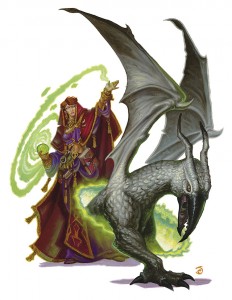On Friday we comb through our extensive archives to find an older article that we feel deserves another look. From January 5, 2011, Dungeon’s Master once again presents: Retreat Is Always An Option, At Least It Should Be.
A common belief among many D&D players is that if the party is balanced and the DM is doing his job properly, every encounter is beatable. This kind of thinking among players instills within them with a sense of invulnerability – an invulnerability that they do not in fact possess. However, with the way that the 4e D&D mechanics work, more often than not players should have a pretty reasonable chance of overcoming a balanced encounter. Thus players continue believing that they’re capable of defeating everything they face. It never even occurs to them that in some instances they’ll face an opponent they can’t beat.
Sometime, however, you’re fortunate enough to play with a group that doesn’t mistakenly believe that they can overcome every encounter put before them. When this kind of party senses that they’re in over their head they will consider retreat as a viable option. It’s not something that will come up very often, but when it does it can have a really dramatic effect on the game.
Twice in the past week I’ve had parties toy with the idea of retreat; once during a level 1 game and the other during a level 16 game. I have to admit that I was very surprised at how differently the two groups rationalized the situation and made their choices.
